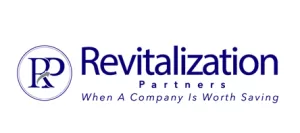 Revitalization Partners has written extensively about Cash Advance Lending or as we call them “Toxic Loans”.
Revitalization Partners has written extensively about Cash Advance Lending or as we call them “Toxic Loans”.
Each month we learn more and more about these loans and the pain of those companies that take them on. In the last several months, we have talked with and met the owners of these companies that are having the money taken out of their bank accounts by these various lenders.
Loan Stacking …
 In one company we talked with, $1400 per day was being taken from their bank account in loan repayments; in another it was $100,000 per month on five loans. In several cases, where the company could not make the payments on the initial loan, that lender, or another lender gave them an even larger loan to pay off the first one.
In one company we talked with, $1400 per day was being taken from their bank account in loan repayments; in another it was $100,000 per month on five loans. In several cases, where the company could not make the payments on the initial loan, that lender, or another lender gave them an even larger loan to pay off the first one.
In the case of two companies we talked with, the situation became so desperate that the owners of the companies took out new loans while we were talking with them about getting out of their situations. This is known as “loan stacking’ and since each of the loans takes about 10% of your future revenue out of the bank on a daily or weekly basis, you can see the problem with “repeat” business.
An Epidemic Of Loans …
 The industry has created an epidemic of these loans. While it is hard to know exactly how many billions of dollars are and have been loaned and what the terms are, there is some data available.
The industry has created an epidemic of these loans. While it is hard to know exactly how many billions of dollars are and have been loaned and what the terms are, there is some data available.
In looking at the SEC filings for one of the largest Cash Advance lenders, we can see the trend. The company has issued $4 billion in loans between 2012 – 2015, a compound annual growth rate of 81%. Approximately 25% of its loans are repeat business. Loans run from $5,000 to $500,000 and are made for between 1 and 3 years. The average effective yield to the company, after all defaults on loans is 44.5%.
Not Just Interest …
It is important to note that this yield is not just interest, but fees and other costs. Because these are not “loans” but a “sale” of future revenue, any state that has usury laws related to commercial loans do not apply. There are no federal usury laws related to commercial transactions.
 Payment is based on an amount to be paid back. For example: You borrow $100,000 and agree to pay back $150,000. Divide that $150,000 by the length of the loan and you know how much is coming out your bank daily or weekly.
Payment is based on an amount to be paid back. For example: You borrow $100,000 and agree to pay back $150,000. Divide that $150,000 by the length of the loan and you know how much is coming out your bank daily or weekly.
There is no advantage to paying the loan off early as there is with an interest rate based loan. Regardless of the length of the loan, the payback is the same.
Our first recommendation is to not get sucked into one of these loans regardless of the amount of desperation. To quote from an article on the topic:
“Have you taken a merchant cash advance? (or 4?)
The thing is … when you learn the truth about these products … it’s obvious … that you’d be better off snorting Drano than signing up to let one of these leeches suck every last dime of profit out of your business. But those nice people that help your business access capital told you the 100% truth when you signed, right?
Daily Payments …
Right?” … “If you’re talking to a merchant advance loan salesperson, you’ll notice they always talk in terms of daily payments.
 You see… business owners think in terms of monthly revenues and expenses. Imagine you get a $25,000 business cash advance for 6 months.
You see… business owners think in terms of monthly revenues and expenses. Imagine you get a $25,000 business cash advance for 6 months.
Quoting your payment as “just $250 a day” makes it sound like a lot less than $5,200 a month. Because making $5,000+ payments on a $25,000 advance kind of sounds like it sucks, doesn’t it?
Or… since that $5,000+ payment is bleeding you dry … you may need to get a second advance just to make payments on the first.
Unfortunately, that’s exactly what a lot of business owners find out after getting stuck with a business advance product. It’s like being one of those dudes waiting for the liquor store to open at 6:30 AM so they can score a $3 bottle of Popov on the way to work.”
Brokers Get Commissions …
 The company pays a commission to brokers who bring borrowers to their platform. That generally isn’t disclosed to borrowers; instead, brokers say, the company approves a borrower for one rate, then allows the broker to charge another, higher rate and keep the difference.
The company pays a commission to brokers who bring borrowers to their platform. That generally isn’t disclosed to borrowers; instead, brokers say, the company approves a borrower for one rate, then allows the broker to charge another, higher rate and keep the difference.
The company limits how much its partners can charge to 12 percent. On a $50,000 loan, that’s $6,000. Some salesmen tack on extra fees, brokers say, despite a company policy against the practice. (The company says it will cut ties with any broker it discovers doing this.) The whole business is so murky that borrowers sometimes can’t tell whom they’re borrowing from, or what they’ll end up paying.
One customer owned a delivery service with five drivers in Glendale, Ariz. In June 2013, desperate to make the next lease payments on her trucks, she called the number on an unsolicited fax she’d received, offering fast money. “There’s nowhere else to turn, she says “They’re sketchy, but that’s all you have.”
500% Annualized Interest Rate …
 She doesn’t remember many details-not the name of the broker or the name of the lender or even how many loans she took. She signed up for at least two. The first, dated June 12, 2013, was a two-and-a-half-month $10,000 loan from a Broker that carried an effective annualized interest rate of more than 500 percent.
She doesn’t remember many details-not the name of the broker or the name of the lender or even how many loans she took. She signed up for at least two. The first, dated June 12, 2013, was a two-and-a-half-month $10,000 loan from a Broker that carried an effective annualized interest rate of more than 500 percent.
Two days later, she took out $30,000 from the company to be paid back over six months. That loan had an effective rate-including interest, a $2,520 guarantee fee, a $750 origination fee, a $500 company platform fee, and a $387 servicing fee-of around 110 percent. A month and a half later, she sought bankruptcy protection.
“It’s the worst possible decision you can ever make, because they own you,” she says. “It’s crack for a business. You can’t get off of it.“
Too Good To Be True …
 Another customer was behind on the bills at his paint and decorating business in Pinellas Park, Fla., started by his father in 1976, when an account executive with a Broker stopped by unannounced one day last year. The broker told him he could get cash by the end of the week at an interest rate of less than 20 percent.
Another customer was behind on the bills at his paint and decorating business in Pinellas Park, Fla., started by his father in 1976, when an account executive with a Broker stopped by unannounced one day last year. The broker told him he could get cash by the end of the week at an interest rate of less than 20 percent.
The loan the broker actually got him, for $55,000, came from the company according to a loan agreement he provided, one that lists a total repayment amount of $75,350 in 252 daily installments. This customer says the broker led him to believe that he could renegotiate the interest rate once he’d paid back half the loan. He never heard from the guy again. The weight of the payments drove him to file for bankruptcy in May, after he’d repaid about $26,000. “It sounded like it was too good to be true-and it was,” he says.
Ask For Help Early …
 As we have stated in the past, the important thing is to ask for help before the desperation drives you into seeing one of these loans as the only solution.
As we have stated in the past, the important thing is to ask for help before the desperation drives you into seeing one of these loans as the only solution.
Over the years, we have worked with all kinds of lenders ranging from large banks to private debt providers. It takes some time to find the right lender to fit a company and present the company’s financial information in a way that the lender understands.
Don’t wait to ask for help until the only solution is one that will ultimately fail.
Revitalization Partners is a Northwest business advisory and restructuring management firm with a demonstrated track record of achieving the best possible outcomes for our clients.
We specialize in improving the operational and financial results of companies and providing hands-on expertise in virtually every circumstance, with a focus on small and mid-market organizations.
Whether your requirement is Interim Management, a Business Assessment, Revitalization and Reengineering or Receivership/Bankruptcy Support, we focus on giving you the best resolution in the fastest time with the highest possible return.


